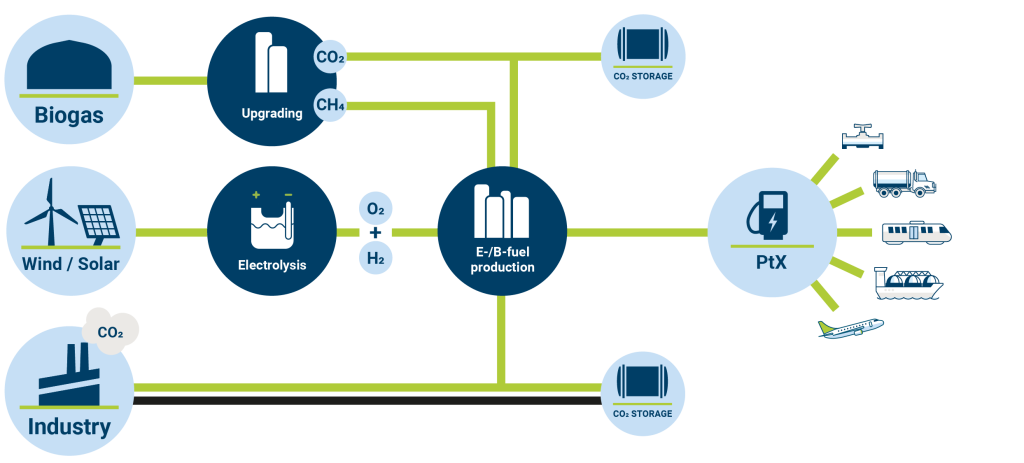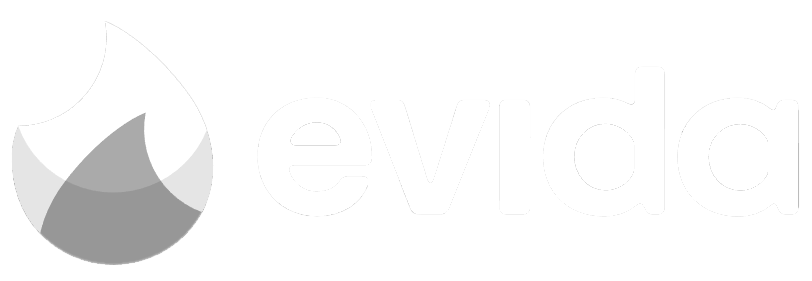Green Hydrogen – frame to fuel of the future
The EU, national and regional governments, and a number of private companies are increasingly developing and promoting strategies with hydrogen as a key energy carrier on the path to net zero emissions. For green hydrogen to accelerate the green energy transition, it will require adoption into sectors, where it is practically absent today. Its versatility means that it can be harnessed by many industries and presents opportunities for sectors that are difficult to decarbonize with renewable electricity, such as steel, agriculture, heavy road-transport and shipping. The increasing interlinking of potential applications is known as sector coupling.
A successful green energy transition, its demands and supplies is greatly depending on how well societies sets favorable conditions to the bringing together of key elements in circular ecosystems and PtX technologies, infrastructures supportive. To relieve the electricity grid of the large amounts of electricity that the green transition inevitably requires, energy should be produced as close as possible to the place it is consumed.
A Hydrogen Hub can be defined as a “network of clean hydrogen producers, potential clean hydrogen consumers, and connective infrastructure located in close proximity.” A hydrogen Hub can be small or big at scale, but the overall mission is the same, namely to develop, accelerate or support sustainable energy production, storage and use across value chains. Put briefly, it is all about bringing together the puzzle pieces wisely.

Hydrogen and PtX – green companions to electricifications
Green hydrogen is currently gaining unpresented momentum and global attention. The EU Commission estimates that green hydrogen will meet 24% of global energy demand by 2050. Whilst direct electrification is key to decarbonisation, green hydrogen and e-fuels are considered main solutions for sectors that are hard to electrify.
Let’s Collaborate
We help partners accelerate their green transitions.
Our vast knowhow tap into the main trends in the green transition, including the potentials around hydrogen hubs and the complexity of their developments. We have a massive network of energy, PtX technology suppliers and developers plus a vast experience in helping the establishments of hydrogen hubs at both small and large scale. Since 2007, we have involved in such funded projects as innovation partner or as a trusted consultancy partner. Our experience include both Danish and international hydrogen hubs.
Pre-development
- Site options discovery and assessments
- Technology and application assessments
- Concept options / Plant design overview
- Pre-feasibility study / viability assessment
- Market analysis regulatory overview
- Funding options overview
- Early stage project ideation and outreach
Project Structuring
- Site selection, permission overview
- Technology selection and supplier shortlisting
- Shortlisting of 3. party engineering companies
- Business case modelling & optimization
- Offtaker identification & initial discussions
- Funding strategy, consortium gathering
- Outreach/communication consortium partners
Development
- Permissions and approvals application support
- Supplier negotiation benchmark and selection
- Support FEED dialogue as “owners engineer”
- Preparation of “bankable” business case for FID
- Support offtaker negotiations
- Funding application support
- PR and communication, local community dialogue
Implementation
- Support implementation and commissioning
- Support supplier dialogue as “owners engineer”
- Support implementation as “owners engineer”
- Contract/budget progress support during implementation
- Support offtaker dialogue
- Reporting and communication (funded projects)
- PR and communication project implementation progress
Operation
- Considering next phase project extension
- Service and maintenance optimization
- Technical asset optimization
- Value and revenue optimization
- New offtakers/customer opportunities
- Reporting and communication (funded projects)
- PR and communication, project impact and benefits
Project Coordination / Management
In Project Management, we are your experienced, trusted and unbiased partner taking the process smoothly from A-Z.




